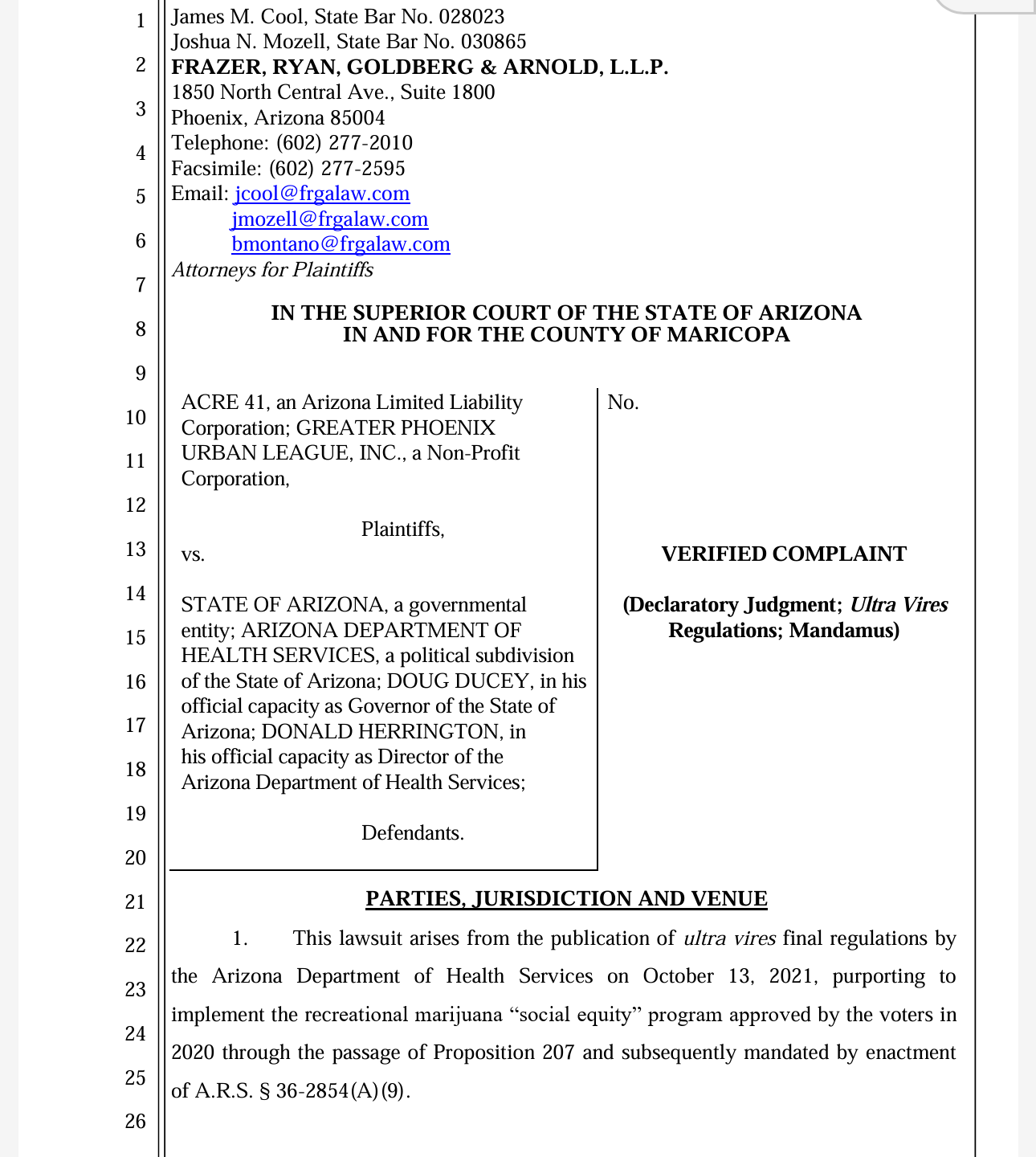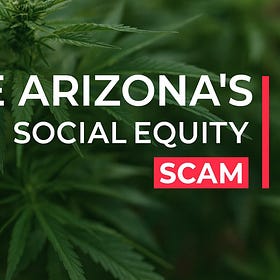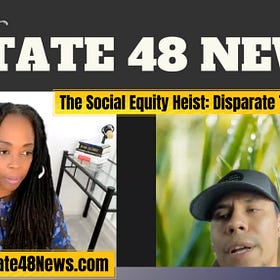When Arizona voters approved Proposition 207 in 2020, legalization came with a promise. Beyond opening the recreational cannabis market, the initiative pledged to create opportunities for people in communities most harmed by prohibition.
The social equity piece was supposed to guarantee that those hit hardest by decades of arrests and criminalization would finally share in the economic benefits of legalization.
Five years later, that promise has failed. Critics argue the program hasn’t lived up to its intent, and evidence shows it has been hijacked by corporate bad actors it was designed to keep out.
One of the loudest voices calling this out is Celeste Rodriguez, co-founder of Acre 41. Before a single license drawing took place, Rodriguez and her group were already in court, warning that the state’s rules opened the door for exploitation. They saw predatory contracts waiting to swallow up social equity applicants, undermining the spirit of Prop 207.
In this episode of State 48 News, we sit down with Rodriguez to walk through that fight, what happened in the courts, and what it revealed about the gap between what voters thought they were approving and what actually played out under the regulators’ watch. We’ll also dig into what’s happened since the licenses were awarded, how corporations came to dominate the field, and why Rodriguez says the program was “destined to fail from inception.”
This isn’t just a cannabis story. It’s about broken promises, the silence of state leaders, corruption at all levels, and the communities left behind.
The Lawsuit That Set the Stage
In November 2021, Acre 41 and the Greater Phoenix Urban League sued the Arizona Department of Health Services (ADHS), challenging the way it planned to award 26 new dispensary licenses. They argued the system reduced equity licenses to “lottery tickets” and handed multi-state operators the keys to bankroll and control qualified applicants.
Rodriguez told Phoenix New Times:
“These [investors] are coming in, selling them the dream… They want to buy them out for pennies, and add it to the portfolios that they are building right now.”
But on February 1, 2022, Maricopa County Superior Court Judge Randall Warner dismissed the case. He didn’t weigh fairness. Instead, he leaned on voter intent: since Prop 207 left the details to ADHS, the agency had broad discretion. As Warner wrote in his decision:
“The voters left to ADHS how the social equity ownership program should work, and the rules [the agency] developed comply with the law and are reasonably designed to meet its objectives.”
Translation: the court washed its hands of equity concerns and deferred to the agency’s broad authority.
A Lottery Dominated by Corporations
With the lawsuit tossed aside, ADHS moved forward. Attempts to delay the drawing over background checks were also denied. The lottery went ahead, and just as Rodriguez predicted, corporate-backed applications swarmed the field.
Licenses intended for individuals flowed quickly into corporate portfolios. Consolidation, not equity, became the outcome. Rodriguez later reflected in the Arizona Informant:
“The program was destined to fail from inception… The rules didn’t protect the intended beneficiaries and left communities with little to no benefit.”
Her early warnings proved true: equity licenses became prizes for the highest bidder.
Silence from State Leadership
Despite mounting evidence of abuse, state leaders have been mostly silent. Critics point to Chad Campbell, who promoted equity provisions of Prop 207 in vulnerable communities, but hasn’t addressed how things turned out. Governor Katie Hobbs and Attorney General Kris Mayes have stayed quiet as well, despite repeated calls for oversight.
For advocates, that silence stings. It signals not just neglect but complicity in a system that abandoned the people it was meant to help.
Beyond Cannabis
The fight over Arizona’s social equity licenses has outgrown cannabis. It’s now a test of whether voter-approved initiatives can survive the pressure of corporate lobbying, agency discretion, and political avoidance.
At its core, this story is about promises made and promises broken. Voters endorsed equity. Regulators wrote rules that paved the way for corporate takeover. Rodriguez said, “the system was intentionally designed to fail.”
At the heart of it, this is bigger than cannabis. It’s about trust in government—and whether voters can believe that the promises they approve at the ballot box will actually be honored.
State 48 News is covering every angle of what critics have dubbed “The Social Equity Heist.” Here’s what we’ve uncovered so far, and the investigation is just beginning.
Arizona’s $250 Million Social Equity Heist: Broken Promises, Political Maneuvers, and Fraud Shielded
The first in a series of disclosures, interviews, and victims’ stories — the Arizonans who believed the “DEI SCAM”, only to be left with nothing but betrayal. (VIDEO)
The Social Equity Heist: Disparity Is a Feature, Not a Bug
In this report, we examine how Arizona regulators stripped a young worker of a basic permit to serve cannabis behind the counter, yet allowed a well-connected owner with a felony record and 22 licenses revoked in Missouri to keep his lucrative Arizona licenses in violation of state rules. While Missouri has aggressively cracked down on the same kind of …







